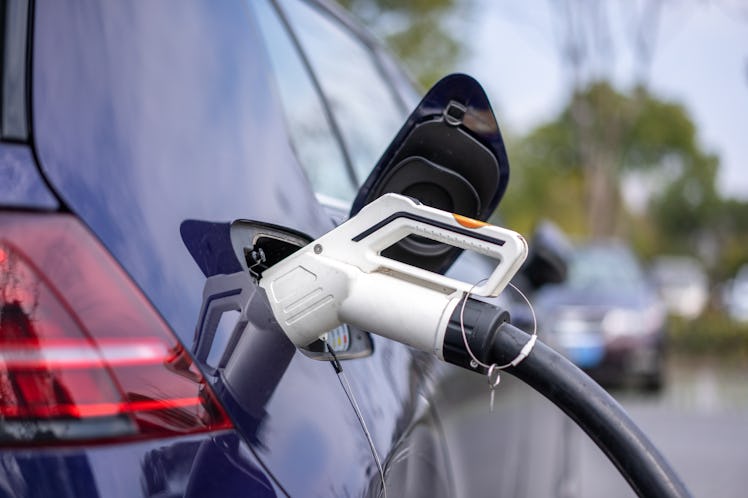There Might Be A Big Catch For EV Buyers In The New Climate Bill
The proposed Inflation Reduction Act has a provision that may hinder, instead of help, the push for consumers to buy more EVs.

At the end of July, Democratic Senators Joe Manchin and Chuck Schumer agreed on the Inflation Reduction Act — a climate change, drug cost, and tax bill all rolled into one. The bill, the single largest legislative package to tackle climate change in history, included a provision for automakers to offer federal tax credits to customers purchasing electric vehicles (EVs).
The act is likely to become law, and it will be enormous for American life in many ways. Still, the auto industry has concerns that one provision in the bill is going to hinder, not help, the switch away from gas-powered vehicles.
In the legislation, there’s a significant focus on North American-made products. For EVs to qualify for the tax credit, at least 40% of the battery must be made in North America. Although that sounds good on paper, that might be a huge problem.
According to The Verge, as it stands, none of the EVs currently on the market would qualify for the tax credit that would come with the Inflation Reduction Act. “Most EVs run on lithium-ion batteries that are mostly made in China,” the publication notes. “[China] has a lock on some 76% of the battery market today (the US only represents 8%).”
There is time for automakers to ramp up EV products in the U.S. with U.S.-based materials. However, experts warn that even with that, the country won’t be able to rapidly meet demand.
For example, the Alliance for Automotive Innovation says that currently there are 72 EV models available to purchase in the U.S., but when the IRA passes, 70% of those cars will be ineligible for the tax credit. By 2029, when additional requirements that 100% of the battery must be North American-made will go into effect, none of the EVs currently on the market would qualify for the full credit.
“That’s going to be a major setback to our collective target of 40% to 50% electric vehicle sales by 2030,” John Bozzella, president and CEO of the alliance, said in a statement provided to E&E News.
According to a Politico analysis, automakers could potentially ask for waivers from the requirements. This could work similarly to how manufacturers avoided the “Buy America” rules passed in the infrastructure law last year in order to deliver big on infrastructure on a limited timeline. Others suggest extending compliance deadlines by a full year to give automakers enough time to get up to speed.
Whatever happens, it’s critical that these EV credits can be applied to as many vehicles as possible — as mass adoption of EVs is very important for the climate.
This article was originally published on